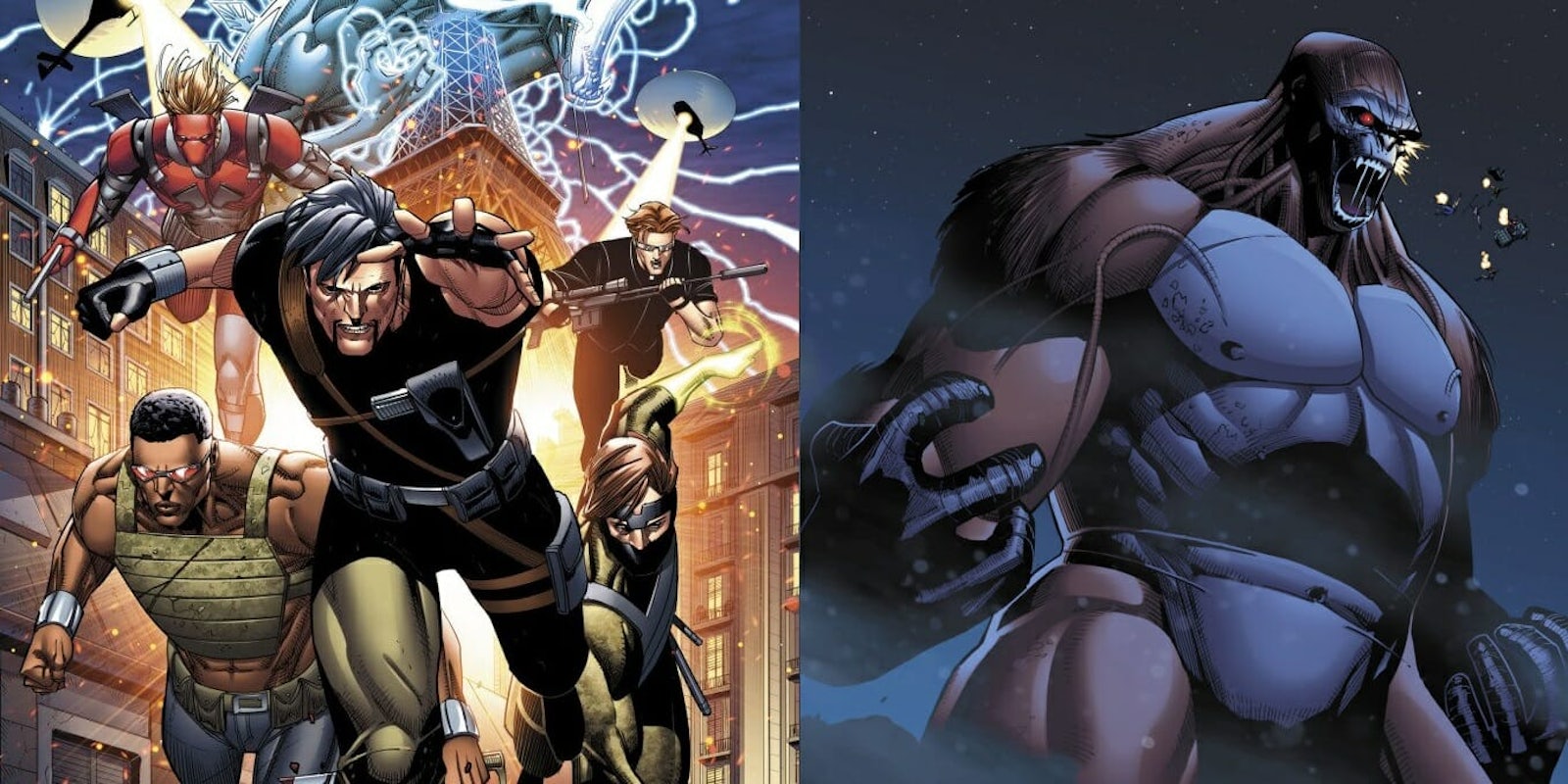Opinion
Crowdfunded indie comic Jawbreakers just lost its publishing deal, canceled due to its creator’s history of online harassment. It’s the latest chapter in the burgeoning Comicsgate saga, following in the footsteps of Gamergate.
While Jawbreakers was a team effort like most comics, artists Jon Malin and Brett R. Smith attracted less attention than writer Richard C. Meyer. He’s better known as an online shit-stirrer, using the pseudonym Diversity & Comics to rail against—you guessed it—diversity in the comics industry.
Unlike Gamergate, which framed itself as a campaign for ethics in games journalism while predominantly attacking female game developers and critics, Comicsgate is more straightforward. It’s a community of people who believe that comics—that is, mainstream action/superhero comics like Marvel and DC—have become too progressive. As Asher Elbein explained in the Daily Beast‘s extensive Comicsgate profile last month, this overlaps with a recent uptick in harassment against women, people of color, and perceived “SJWs” (social justice warriors) in the industry.
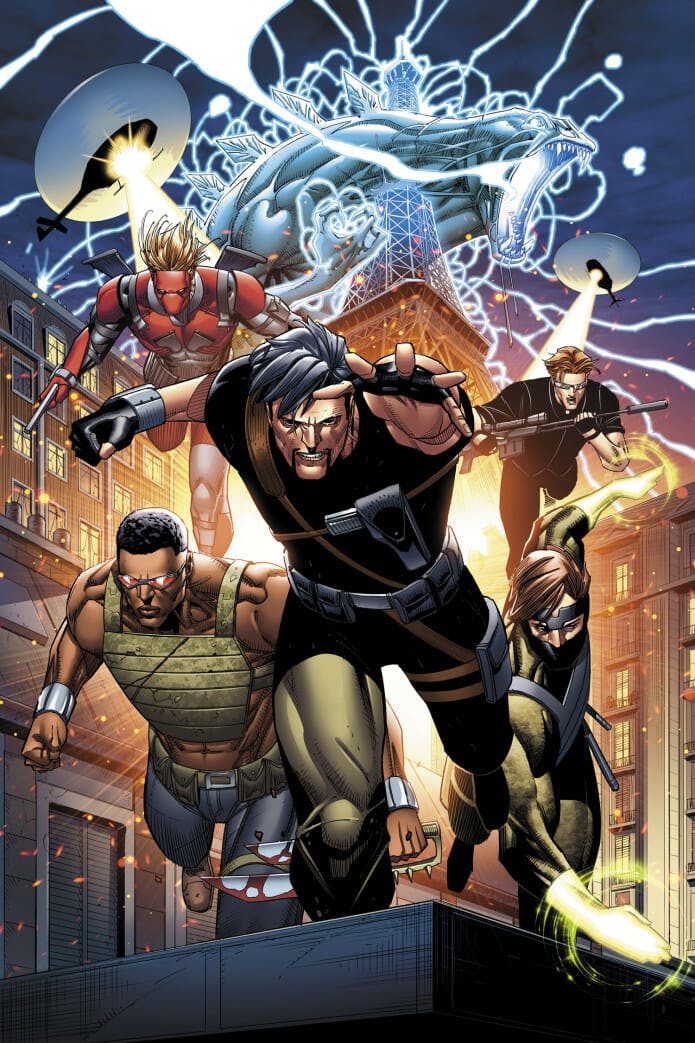
Remember when Marvel editor Heather Antos inspired vitriolic backlash for tweeting a photo drinking milkshakes with some female coworkers? That was Comicsgate. One of Meyer’s more attention-grabbing controversies was a 2017 video called “Dark Roast.” It wasn’t so much a comedy roast as a screed of bigoted insults aimed at writers, artists, and editors in the industry. He described one woman as a “cum dumpster” and suggested several high-profile creators were pedophiles, throwing in some vicious transphobia for good measure. This sets the scene for Jawbreakers‘ cancellation, which Meyer characterizes as the result of cyberbullying from leftist haters.
The rise and fall of Jawbreakers
Jawbreakers is, in fact, pretty successful already. The comic raised over $250,000 on Indiegogo; the kind of money one usually sees for popular webcomics like Penny Arcade or Check, Please! that have pre-existing fans. Rather than having a fanbase, Jawbreakers represents a political cause. It’s aimed at people who think “traditional” male heroes are a dying breed, and that superhero comics are losing sales due to women and diversity.
When Meyer Kickstarted an earlier version of the comic in 2015, he scraped past his $3,500 goal and delivered the volume two years later. Now, he can monetize Comicsgate with help from established creators with similar political views. Jawbreakers’ new artist, Jon Malin, recently raised eyebrows by comparing leftists to Hitler. (At the time he was drawing Cable for Marvel, but his tenure ended soon after.) Cover artist Ethan Van Sciver is one of Meyer’s most prominent supporters, although his trollish behavior led DC Comics to distance itself from him this year. Colorist Brett Smith has a long résumé with mainstream publishers, but recently tried to launch an indie comic about the alt-right icon Based Stickman. (So far, the Based Stickman comic has failed to materialize.)
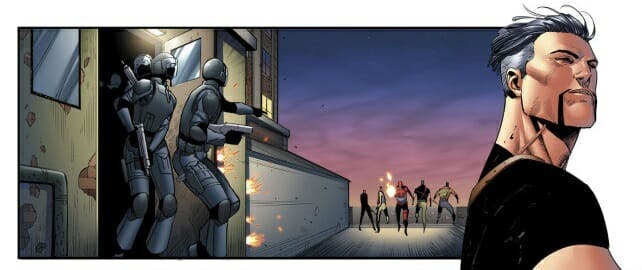
In terms of its actual content, Jawbreakers looks like a professionally produced but rather unoriginal action comic. It’s about a team of superheroes-turned-mercenaries, and the Indiegogo page doesn’t go into much detail about plot or characters. If it wasn’t marketed as a battlefield in the culture wars, it probably wouldn’t have attracted so many financial backers.
Thanks to its popularity on Indiegogo, Jawbreakers landed a conventional publishing deal with Antarctic Press. It’s an indie press with an open-minded attitude to new material, publishing a wide variety of genres. It also publishes both pro- and anti-Trump satirical comics, suggesting it didn’t necessarily have a horse in the Comicsgate race. However, the decision to publish Jawbreakers quickly attracted attention. Last week, several retailers announced they wouldn’t stock the comic, making a statement against what they believe to be a toxic influence in the industry.
We will not be stocking the upcoming @AntarcticPress comic JAWBREAKERS on shelf.
— Variant Edition Graphic Novels + Comics (YEG) (@VariantEDmonton) May 10, 2018
It does not appeal to our demographic, and we will not actively support creators who have promoted harm to friends, collegues and strangers.
Pre-paid orders will be accepted for those interested.
Meyer responded by tweeting the names and addresses of stores that decided not to stock Jawbreakers. According to Bleeding Cool‘s in-depth report of the weekend’s events, the retailers then received negative reviews and online comments. This included stores that ordered individual copies requested by customers, a completely normal sales practice for lesser-known titles.
At this point, the controversy was public enough that well-known industry figures were getting involved. DC writer Gail Simone tangled with Jawbreakers fans on Twitter, and Marvel writer Mark Waid called Antarctic Press on Friday to find out if they knew about Meyer’s history. (Waid and Meyer have clashed in the past.) In a post screencapped by Bleeding Cool, Waid wrote:
“I have a call in to Antarctic Press. Until I hear back, I’m (hesitantly) willing to give them the benefit of the doubt that they don’t really understand who or what they’re getting into business with, which – though it would seem a stretch – is a possibility. If I do hear back, I’ll report in. Curious as to how they feel about publishing creators whose marketing strategy is to allegedly (*koff*) encourage their fans to threaten the employees of stores, and/or harass and one-star-review-bob stores, that don’t order their product.”
In the early hours of Saturday morning, Antarctic Press announced on Facebook it would no longer publish Jawbreakers.
“Antarctic Press is a staunch believer in Creator’s Rights and giving creators a chance to showcase their creation and allowing that creation to be judged on its merits.
Many forces, many of them should be viewed with great trepidation about how our society acts, have led us to this decision. We do not take this decision lightly as we do believe that there should be separation between “ART” and the “ARTIST” and that separation has been blurred in our decision.”
Meyer then accused Waid of using his power in the industry to get Jawbreakers cancelled.
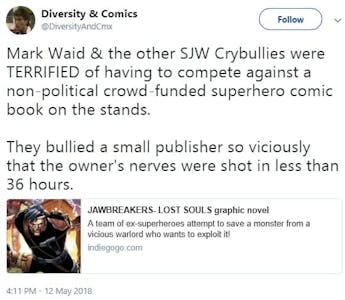
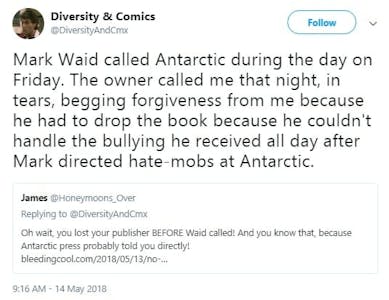
He also shared an unverified Reddit/4chan post claiming to be from a Marvel employee, saying that Marvel Editor-in-Chief C.B. Cebulski received “VERY angry emails from Antarctica Press.” The anonymous post claimed that Antarctic threatened legal action against Marvel, because Waid supposedly used the Marvel brand while threatening “physical violence” against Antarctic Press. There’s no evidence that any of the accusations are accurate, or that Marvel got involved in any capacity. In a later tweet, Antarctic Press denied contact with either Marvel or Cebulski.
https://twitter.com/AntarcticPress/status/995423098714247168
Jawbreakers isn’t really “canceled.” The book will still go out to its 6,800-odd Indiegogo backers, and its creators already announced they’re launching a new publisher called Splatto Comics. Colorist Brett Smith said it would be an imprint of Simon & Schuster, but then deleted the tweet. As of Monday, Splatto mostly consists of a name and a logo.
Following the Gamergate playbook
While this whole controversy is ostensibly about an Indiegogo comic, it’s actually part of a familiar campaign strategy. From Gamergate YouTubers to far-right internet celebrities spotlighted during the 2016 U.S. election, agitators have employed a similar playbook to stir up controversy and raise their own name-recognition, typically targeting conservative communities of predominantly white men who feel their world is being overtaken by progressive values and identity politics.
They stir up flamewars and share bigoted comments online, especially targeting women and minorities. When called out, they claim it’s either a two-sided “debate” or just edgy humor. When mainstream media outlets and public figures start to criticize the behavior, the agitators position themselves as underdog heroes who are fighting censorship. And, inevitably, they have something to sell.
Meyer has built a public profile for himself, attracting attention with offensive stunts. Getting dropped by Antarctic Press may wind up being a net gain for Jawbreakers. (Most of his target audience won’t be familiar with Antarctic Press, but they certainly know Mark Waid.) After this, the obvious next step is to launch a new indie publisher or comics site, either crowdfunded or backed by a sympathetic investor.
So far, it’s unclear how well this strategy works long-term. In the aftermath of Gamergate, we saw projects like The Sarkeesian Effect, a documentary that raised thousands of dollars on Patreon before imploding spectacularly. Similarly, Milo Yiannopoulos gained international notoriety before losing a lucrative book deal and falling from grace. He now advertises supplement pills on Infowars. Richard Spencer’s alt-right websites keep getting taken down, and he “postponed” his college lecture tour due to lack of interest. So while it’s possible to gain money and followers by agitating hate campaigns online, it’s not necessarily a sustainable model. Especially if you receive effective pushback from the community you’re targeting. The future of Comicsgate depends on whether comics industry leaders decide to look the other way—as some game developers did during Gamergate—or if they’ll actually take a public stand against harassment.

